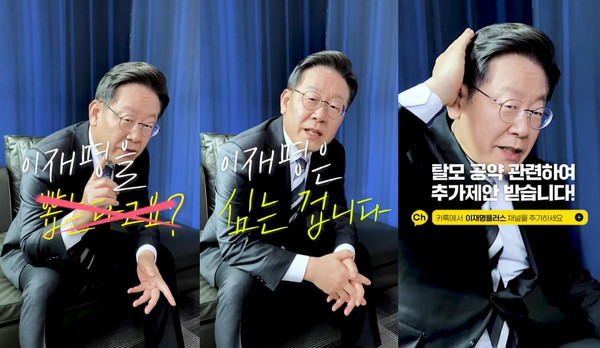
Severe and rare disease patients vent their anger against support for hair loss treatment cost, one of the campaign pledges of opposition leader Lee Jae-myung during the last presidential election.
For example, the municipal administration in Boryung, South Chungcheong Province, has begun to provide up to 2 million won ($1,540) for two years for people aged 49 or less with hair loss this year. Seongdong District in Seoul also decided to subsidize 200,000 won yearly for people aged 39 or younger from this month.
In December, the city council of Daegu approved a decree to support young people with hair loss by giving hair treatment vouchers to people 39 or younger diagnosed with hair loss.
“We are shocked to hear news about some localities’ support for hair loss treatment,” said Kim Seong-hu, the Korean Cancer Patients’ Rights Council (KCPRC) representative. “This issue has passed as a happening caused by some vote-thirsty candidates during the last presidential elections. However, some local autonomous bodies are implementing or preparing to implement it using taxpayer money without social consensus.”
Kim pointed out that severe cancer patients and rare disease patients face many problems, such as job loss, caretaking, and expensive treatment costs.
“The government is minimizing its support even for disastrous medical costs leaving rare and severe disease patients in blind spots. The central government and local autonomous bodies should make positive efforts to tackle this problem,” he said.
“We feel frustrated to see central and local governments, while failing to provide financial support for these patients and attain financial independence, go on providing support for hair loss treatment,” Kim said. “We cannot help but ask what support projects these local governments are conducting to help severe and rare disease patients as they do for people with hair loss.”
KCPRC called for the local councils to prepare decrees to help hair loss patients and pay more attention to severe and rare disease patients.
“We can never tolerate the behavior of local governments, which suddenly brought up a project to support hair loss treatment costs, including Boryung, Daegu, and Seongdong-gu,” he said. “Taxpayers' money must not be used to buy votes. Medical financial resources must be used for purposes related to essential care. They must work out systems to prevent the loss of lives for lack of money.”
“Severe and rare disease patients are losing lives for lack of money or treatments even right now,” Kim said. “We request local governments work out decrees and systems to save the life of even one patient with financial difficulty.”

